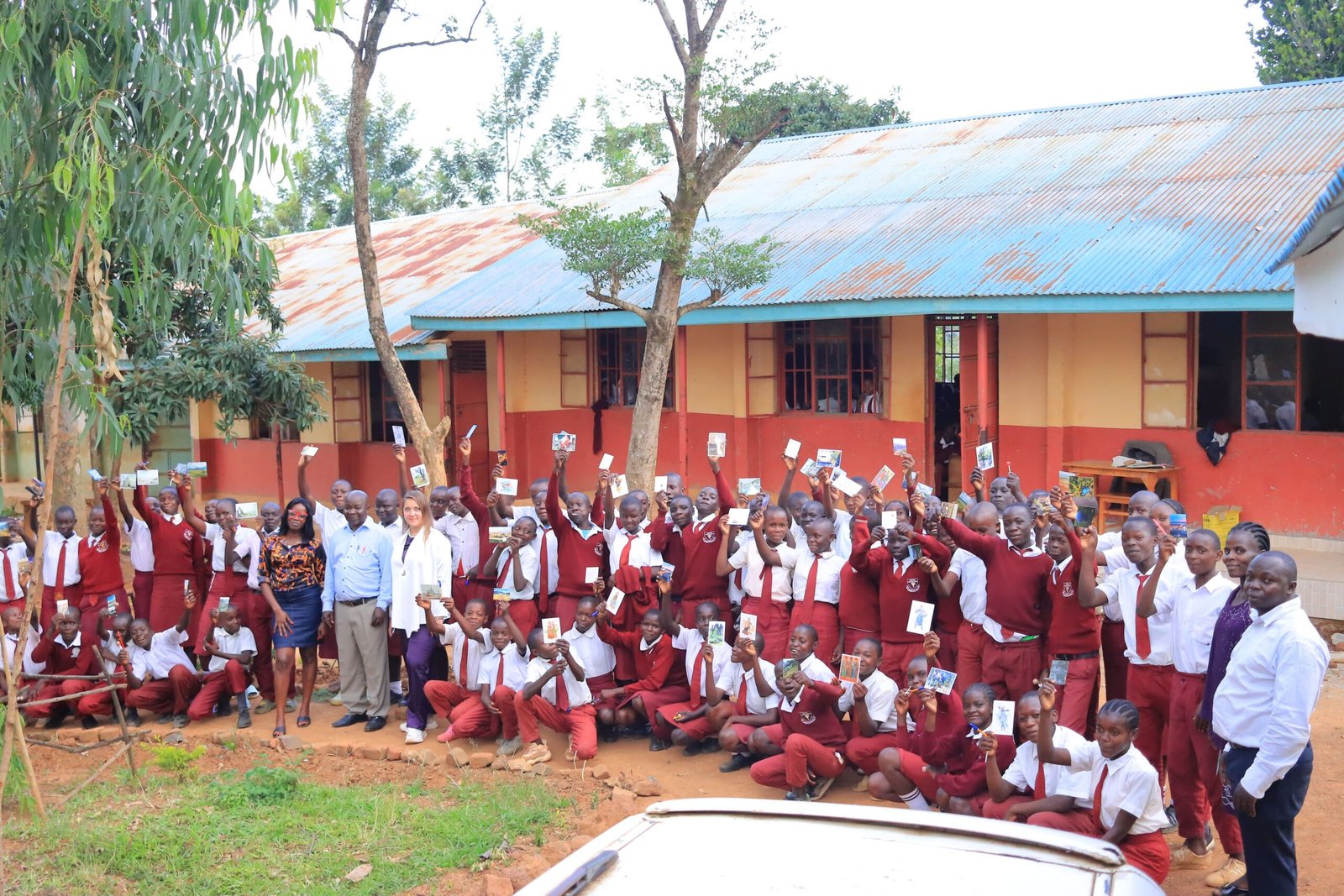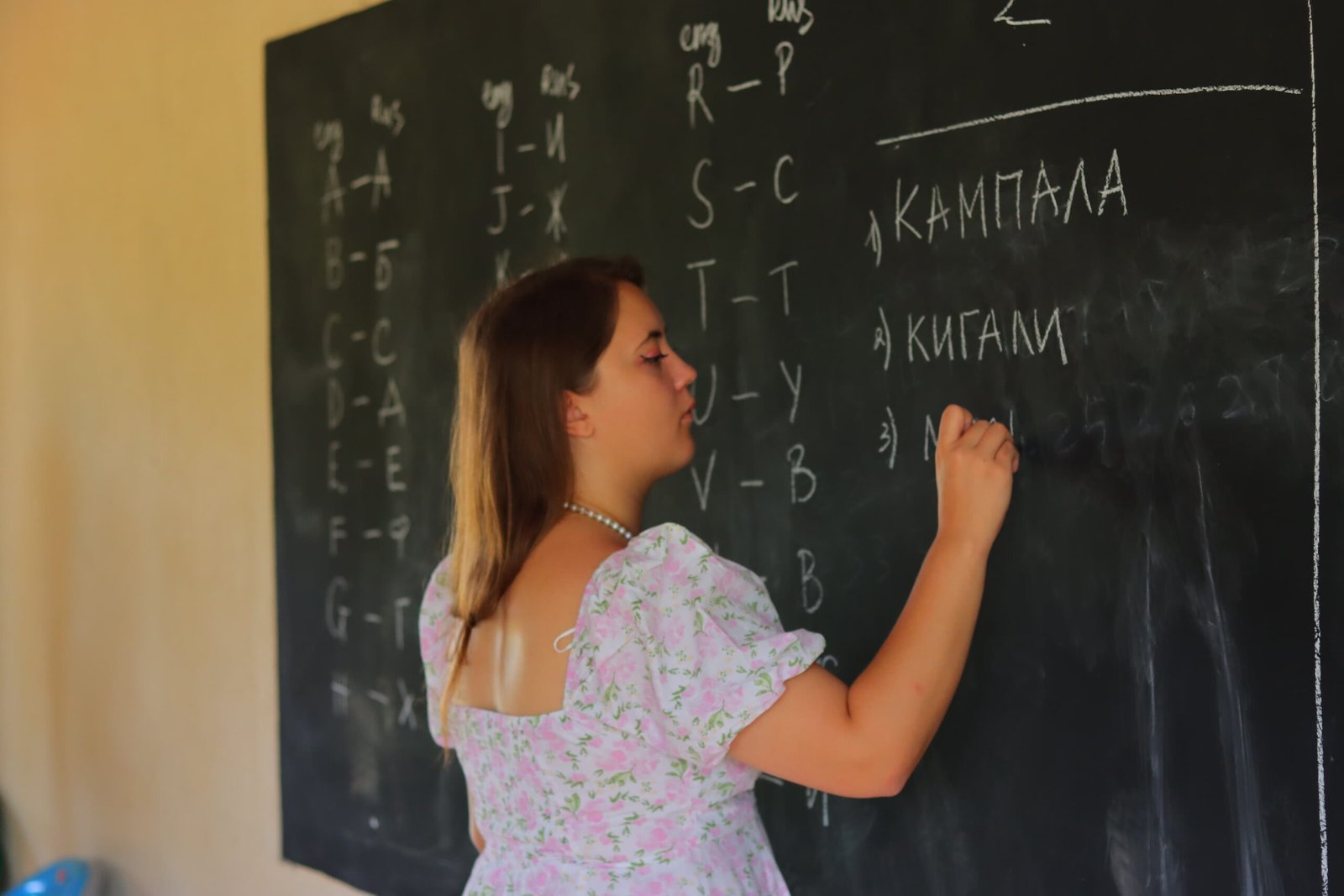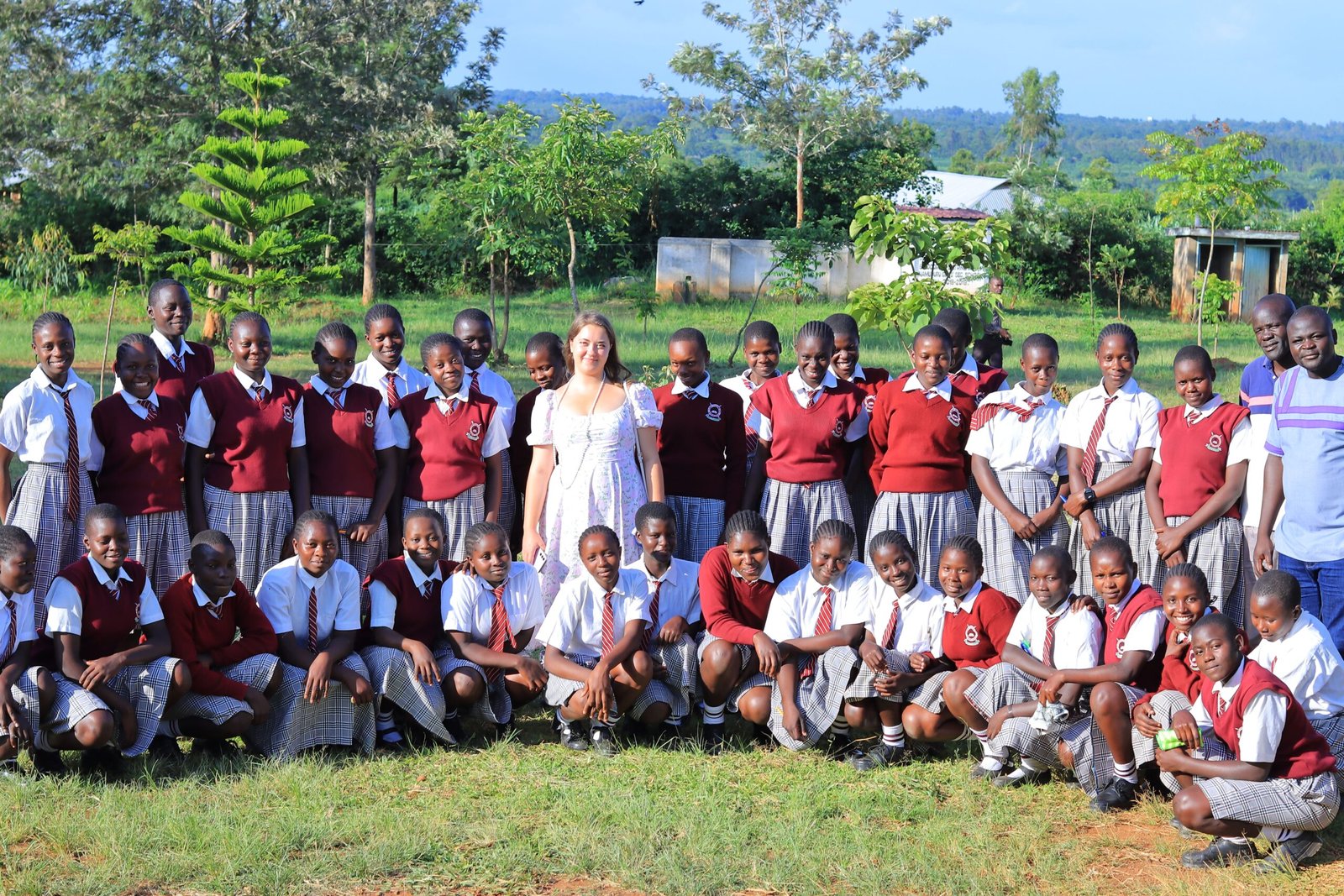June 9, 2025
Part of the Russia Cultural Workshops Series – Siaya County, June 2025
About the School
Ng’ura Primary and Junior School, a mixed-day institution in Siaya County, was founded in 1982 and currently serves 450 students. Under the leadership of Headteacher Mr. Sylvester Amuga, the school operates with a dedicated team of 18 staff members, including 9 primary teachers, 3 outsourced instructors, and 2 kitchen staff. Ng’ura Primary excels in Integrated Science and Agricultural Development.
The school has a feeding program, providing rice and beans for junior students and porridge for ECD learners, supported by parental contributions. Notably, the school is solar-powered, has a functional borehole for water, and has invested in tiling and CCTV cameras for security. Despite these advancements, significant challenges remain.
When We Visited – 9 June 2025
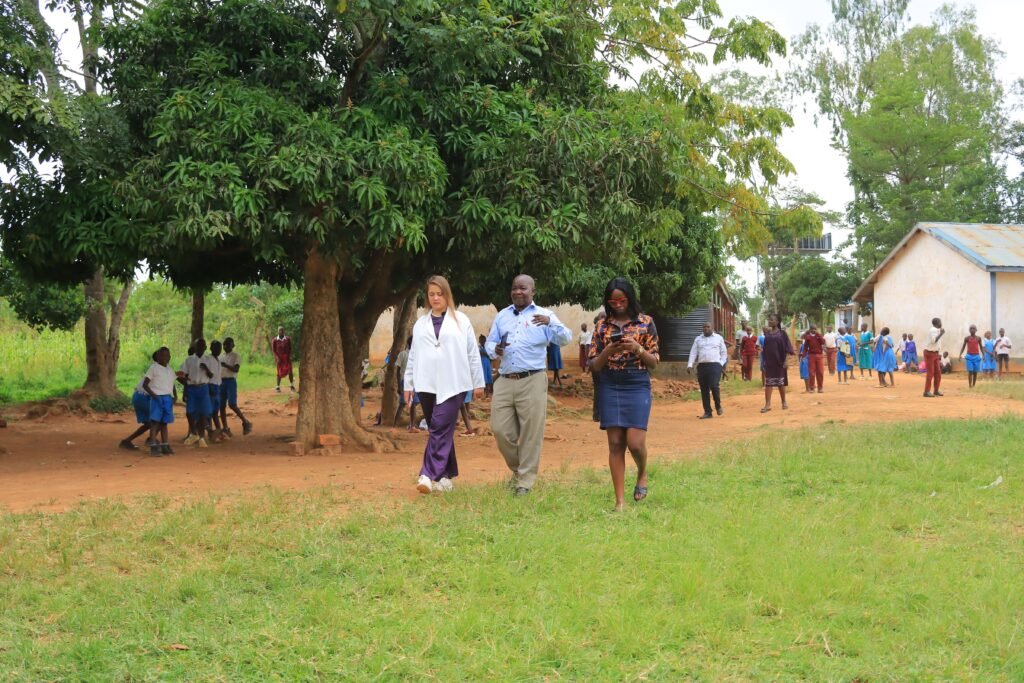
On June 9, 2025, the “Path to Russia” team visited Ng’ura Primary and Junior School. Our engagement included a cultural workshop, discussions with school leadership, and an assessment of their facilities. We explored opportunities for collaboration, particularly in addressing literacy, science education, and digital learning. The visit highlighted the school’s active pursuit of improvement despite its resource limitations.
Activities Conducted
Our time at Ng’ura Primary and Junior School encompassed:
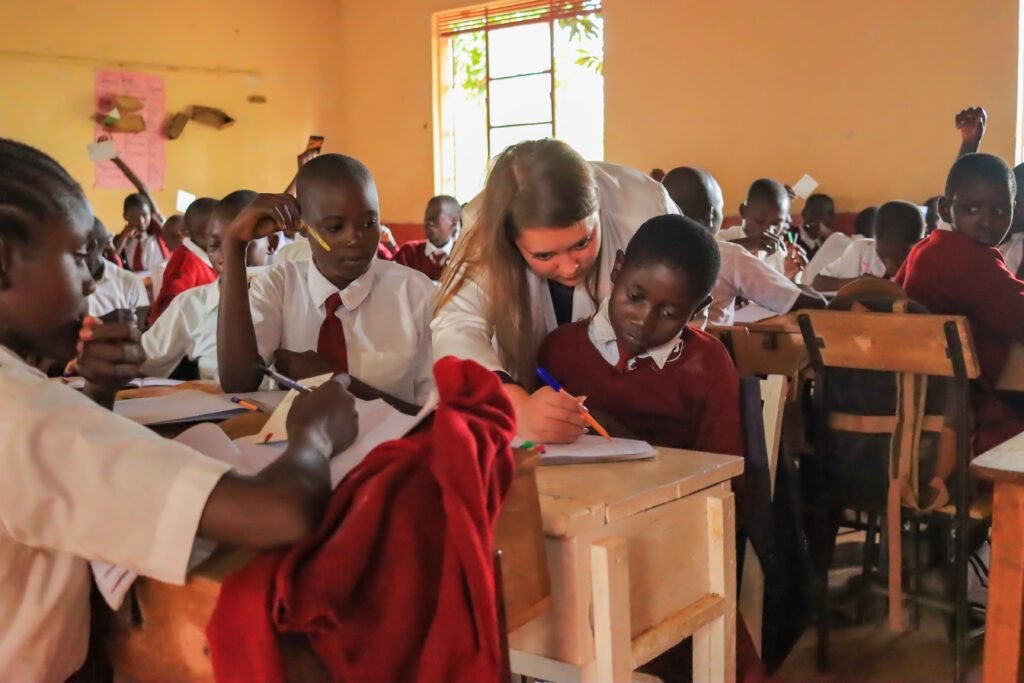
- School Overview and Dialogue: Meeting with Headteacher Mr. Sylvester Amuga and other key staff members to understand the school’s vision and daily operations.
- Facility Assessment: A guided tour to assess the existing infrastructure, including classrooms, the science lab, and the ICT room.
- Cultural Workshop: An interactive session focused on introducing Russian culture and language, fostering a broader global perspective among students.
- Collaborative Discussion: Engaging in discussions about potential partnerships and support areas to bridge critical gaps in the school’s development.
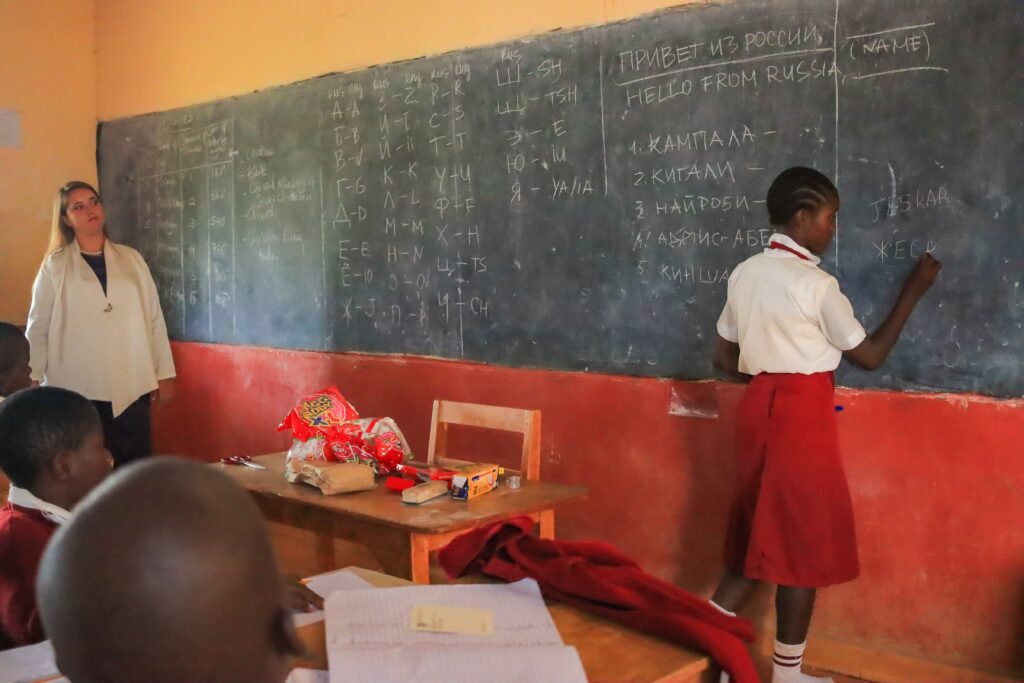
Challenges Observed
Our visit revealed several key challenges that impact Ng’ura Primary and Junior School:
- Low Literacy Levels: A significant concern requiring targeted intervention programs.
- Inadequate Classrooms: Insufficient number of classrooms to comfortably accommodate the student population, leading to an average class size of 40–60 students.
- No Computer Laboratory: Despite internet availability, there is no dedicated computer lab, hindering digital literacy education.
- Incomplete Science Laboratory: The science lab is unfinished and lacks essential equipment, limiting practical science learning.
- No Established Library: While government-issued books are available, there is no structured library space for reading and research.
- Limited Space for Expansion: The school’s physical space is constrained, limiting opportunities for agricultural and sports development.
- Inadequate Sanitation: Only 6 pit latrines are available for the entire school population, indicating a need for additional facilities.
- Funding Shortfalls: Critical projects face delays due to insufficient funding.
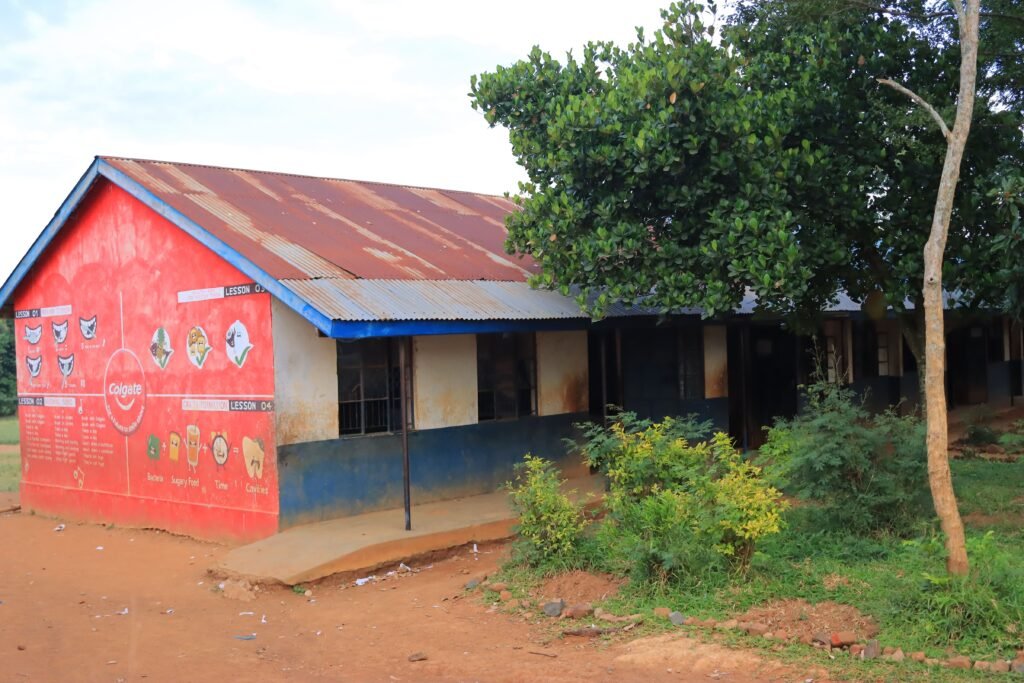
Why It Matters
Ng’ura Primary and Junior School exemplifies a community-driven spirit, with strong leadership and parental involvement. Addressing its identified challenges will not only improve the learning environment but also directly impact student performance, particularly in literacy, science, and digital skills. The “Path to Russia” initiative is committed to supporting Ng’ura in achieving its development goals and providing its students with the resources they need to succeed.
Looking Ahead
Our commitment to Ng’ura Primary and Junior School is centered on key development priorities:
- ICT Infrastructure: Establishing a fully equipped computer lab to enhance digital literacy.
- Science Education: Completing and equipping the science lab with all necessary apparatus.
- Space Expansion: Expanding physical space for agricultural activities and sports.
- Library Development: Creating a structured library to foster a love for reading and provide research resources.
- Sanitation Facilities: Constructing additional and improved sanitation facilities for students.
These initiatives are crucial steps towards empowering Ng’ura Primary and Junior School to provide a comprehensive and quality education for its students, preparing them for future opportunities.


